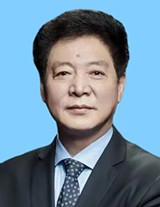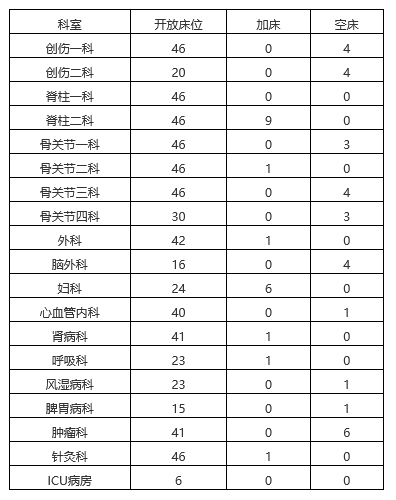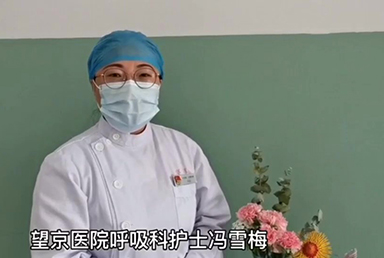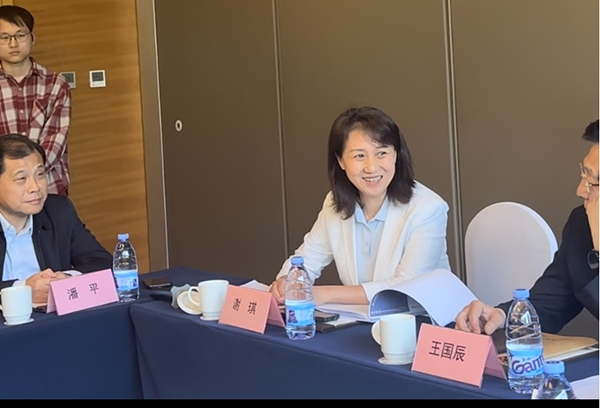赫爾辛基宣言
The World Medical Association, Inc
世界醫(yī)學(xué)會(huì)
DECLARATION OF HELSINKI
Ethical Principles for Medical Research Involving Human Subjects
赫爾辛基宣言
涉及人體受試者的醫(yī)學(xué)研究倫理原則
Adopted by the 18th WMA General Assembly, Helsinki, Finland, June 1964, and amended by the:
29th WMA General Assembly, Tokyo, Japan, October 1975
35th WMA General Assembly, Venice, Italy, October 1983
41st WMA General Assembly, Hong Kong, September 1989
48th WMA General Assembly, Somerset West, Republic of South Africa, October 1996
52nd WMA General Assembly, Edinburgh, Scotland, October 2000
53th WMA General Assembly, Washington, United States, October 2002
(Note of Clarification on paragraph 29 added)
55th WMA General Assembly, Tokyo, Japan, October 2004
(Note of Clarification on Paragraph 30 added)
WMA General Assembly, Seoul, Korea, October 2008
1964年6月第18屆世界醫(yī)學(xué)會(huì)大會(huì),芬蘭,赫爾辛基通過(guò),修訂于:
第29屆世界醫(yī)學(xué)會(huì)大會(huì),日本,東京,1975年10月
第35屆世界醫(yī)學(xué)會(huì)大會(huì),意大利,威尼斯,1983年10月
第41屆世界醫(yī)學(xué)會(huì)大會(huì),香港,1989年9月
第48屆世界醫(yī)學(xué)會(huì)大會(huì),南非共和國(guó),西蘇瑪錫,1996年10月
第52屆世界醫(yī)學(xué)會(huì)大會(huì),蘇格蘭,愛(ài)丁堡,2000年10月
第53屆世界醫(yī)學(xué)會(huì)大會(huì),美國(guó),華盛頓,2002年10月
(增加了對(duì)第29段落的解釋說(shuō)明)
第55屆世界醫(yī)學(xué)會(huì)大會(huì),日本,東京,2004年10月
(增加了對(duì)第30段落的解釋說(shuō)明)
世界醫(yī)學(xué)會(huì)大會(huì),韓國(guó),首爾,2008年10月
世界醫(yī)學(xué)會(huì)赫爾辛基宣言
| A. INTRODUCTION | A.前言 | |
| 1. The World Medical Association (WMA) has developed the Declaration of Helsinki as a statement of ethical principles for medical research involving human subjects, including research on identifiable human material and data. The Declaration is intended to be read as a whole and each of its constituent paragraphs should not be applied without consideration of all other relevant paragraphs. | 1.世界醫(yī)學(xué)會(huì)(WMA)制定了《赫爾辛基宣言》,是作為對(duì)涉及人體受試者的醫(yī)學(xué)研究的倫理原則的一項(xiàng)聲明,此研究還包括對(duì)可識(shí)別身份的人體材料和數(shù)據(jù)進(jìn)行的研究。 《宣言》應(yīng)整體閱讀,其中任一段落的運(yùn)用都應(yīng)同時(shí)考慮到其他所有相關(guān)段落的內(nèi)容。 | |
| 2. Although the Declaration is addressed primarily to physicians, the WMA encourages other participants in medical research involving human subjects to adopt these principles. | 2.盡管《宣言》主要針對(duì)醫(yī)生,世界醫(yī)學(xué)會(huì)鼓勵(lì)參與涉及人體受試者的研究的其他相關(guān)人員采納這些原則。 | |
| 3. It is the duty of the physician to promote and safeguard the health of patients, including those who are involved in medical research. The physician's knowledge and conscience are dedicated to the fulfilment of this duty. | 3.促進(jìn)和維護(hù)患者的健康,包括那些參加醫(yī)學(xué)研究的患者,是醫(yī)生的職責(zé)。醫(yī)生以知識(shí)和良知致力于完成該職責(zé)。 | |
| 4. The Declaration of Geneva of the WMA binds the physician with the words, “The health of my patient will be my first consideration,” and the International Code of Medical Ethics declares that, “A physician shall act in the patient's best interest when providing medical care.” | 4.世界醫(yī)學(xué)會(huì)的《日內(nèi)瓦宣言》用下列詞語(yǔ)約束醫(yī)生“患者的健康是我首先需要考慮的”。《國(guó)際醫(yī)學(xué)倫理守則》宣告,“醫(yī)生在提供醫(yī)護(hù)時(shí)應(yīng)從患者的最佳利益出發(fā)。” | |
| 5. Medical progress is based on research that ultimately must include studies involving human subjects. Populations that are underrepresented in medical research should be provided appropriate access to participation in research. | 5.醫(yī)學(xué)進(jìn)步以科學(xué)研究為基礎(chǔ),而研究最終必須涉及人體受試者。應(yīng)使那些在醫(yī)學(xué)研究中缺乏代表性的人群有機(jī)會(huì)參加研究。 | |
| 6. In medical research involving human subjects, the well-being of the individual research subject must take precedence over all other interests. | 6.在涉及人體受試者的研究中,個(gè)體研究受試者的福祉必須高于所有其他利益。 | |
| 7. The primary purpose of medical research involving human subjects is to understand the causes, development and effects of diseases and improve preventive, diagnostic and therapeutic interventions (methods, procedures and treatments). Even the best current interventions must be evaluated continually through research for their safety, effectiveness, efficiency, accessibility and quality. | 7.涉及人類受試者的醫(yī)學(xué)研究的首要目的,是了解疾病的起因、發(fā)展和影響,并改進(jìn)預(yù)防、診斷和治療干預(yù)措施(方法、操作程序和治療)。即使是當(dāng)前最佳干預(yù)措施,也必須不斷通過(guò)對(duì)其安全性、有效性、效率、可及性和質(zhì)量進(jìn)行研究,予以評(píng)估。 | |
| 8. In medical practice and in medical research, most interventions involve risks and burdens. | 8.在醫(yī)學(xué)實(shí)踐和醫(yī)學(xué)研究中,大多干預(yù)措施具有風(fēng)險(xiǎn),會(huì)造成負(fù)擔(dān)。 | |
| 9. Medical research is subject to ethical standards that promote respect for all human subjects and protect their health and rights. Some research populations are particularly vulnerable and need special protection. These include those who cannot give or refuse consent for themselves and those who may be vulnerable to coercion or undue influence. | 9. 醫(yī)學(xué)研究要遵循那些促進(jìn)尊重人體受試者、保護(hù)他們的健康和權(quán)利的倫理標(biāo)準(zhǔn)。一些研究涉及的人群特別易受傷害,需要特別保護(hù)。這包括那些無(wú)能力自主決定同意或拒絕的人群、和可能受到強(qiáng)迫或不正當(dāng)影響的人群。 | |
| 10. Physicians should consider the ethical, legal and regulatory norms and standards for research involving human subjects in their own countries as well as applicable international norms and standards. No national or international ethical, legal or regulatory requirement should reduce or eliminate any of the protections for research subjects set forth in this Declaration. | 10.醫(yī)生不僅要考慮本國(guó)的、有關(guān)涉及人體受試者的研究的倫理、法律和法規(guī)條例標(biāo)準(zhǔn),也要考慮適用的國(guó)際規(guī)范和標(biāo)準(zhǔn)。任何國(guó)家或國(guó)際的倫理、法律或法規(guī)要求不應(yīng)減少或刪除本宣言提出的對(duì)研究受試者的任一保護(hù)措施。 | |
| B. PRINCIPLES FOR ALL MEDICAL RESEARCH | B. 適用于所有醫(yī)學(xué)研究的原則 | |
| 11. It is the duty of physicians who participate in medical research to protect the life, health, dignity, integrity, right to self-determination, privacy, and confidentiality of personal information of research subjects. | 11. 參與醫(yī)學(xué)研究的醫(yī)生有責(zé)任保護(hù)研究受試者的生命、健康、尊嚴(yán)、完整性、自我決定權(quán)、隱私和個(gè)人信息的保密。 | |
| 12. Medical research involving human subjects must conform to generally accepted scientific principles, be based on a thorough knowledge of the scientific literature, other relevant sources of information, and adequate laboratory and, as appropriate, animal experimentation. The welfare of animals used for research must be respected. | 12. 涉及人體受試者的研究必須符合公認(rèn)的科學(xué)原則,并以對(duì)科學(xué)文獻(xiàn)、其他相關(guān)資料、充分的實(shí)驗(yàn)室研究、適當(dāng)?shù)膭?dòng)物實(shí)驗(yàn)的充分了解為基礎(chǔ)。實(shí)驗(yàn)動(dòng)物的福利必須得到尊重。 | |
| 13. Appropriate caution must be exercised in the conduct of medical research that may harm the environment. | 13.開(kāi)展有可能破壞環(huán)境的醫(yī)學(xué)研究應(yīng)予以適當(dāng)?shù)闹?jǐn)慎。 | |
| 14. The design and performance of each research study involving human subjects must be clearly described in a research protocol. The protocol should contain a statement of the ethical considerations involved and should indicate how the principles in this Declaration have been addressed. The protocol should include information regarding funding, sponsors, institutional affiliations, other potential conflicts of interest, incentives for subjects and provisions for treating and/or compensating subjects who are harmed as a consequence of participation in the research study. The protocol should describe arrangements for post-study access by study subjects to interventions identified as beneficial in the study or access to other appropriate care or benefits. | 14. 任何涉及人體受試者的研究,其設(shè)計(jì)和操作,必須在研究方案中明確描述。方案應(yīng)陳述該研究涉及的倫理問(wèn)題,簡(jiǎn)要說(shuō)明如何體現(xiàn)《宣言》中的原則。研究方案應(yīng)包括有關(guān)資金來(lái)源、資助者、機(jī)構(gòu)隸屬關(guān)系、其他潛在的利益沖突、對(duì)受試者的激勵(lì)措施,以及對(duì)研究造成的傷害如何治療和/或予以補(bǔ)償?shù)男畔ⅰQ芯糠桨笐?yīng)說(shuō)明研究結(jié)束后,有關(guān)受試者獲得經(jīng)研究確定為有益的干預(yù)措施的安排,或得到其他適當(dāng)?shù)恼兆o(hù)或益處。 | |
| 15. The research protocol must be submitted for consideration, comment, guidance and approval to a research ethics committee before the study begins. This committee must be independent of the researcher, the sponsor and any other undue influence. It must take into consideration the laws and regulations of the country or countries in which the research is to be performed as well as applicable international norms and standards but these must not be allowed to reduce or eliminate any of the protections for research subjects set forth in this Declaration. The committee must have the right to monitor ongoing studies. The researcher must provide monitoring information to the committee, especially information about any serious adverse events. No change to the protocol may be made without consideration and approval by the committee. | 15. 研究開(kāi)始前,研究方案必須遞交至研究倫理委員會(huì),供其考慮、評(píng)論、指導(dǎo)和批準(zhǔn)。該委員會(huì)必須獨(dú)立于研究者、資助者和其他任何不當(dāng)影響之外。委員會(huì)必須考慮本國(guó)和研究項(xiàng)目開(kāi)展國(guó)的法律和法規(guī)、以及適用的國(guó)際規(guī)范和標(biāo)準(zhǔn),但這些絕不允許減少或刪除本宣言提出的對(duì)研究受試者的保護(hù)措施。委員會(huì)必須有權(quán)監(jiān)督正在進(jìn)行中的研究。研究人員必須向該委員會(huì)提供監(jiān)督的信息,特別是關(guān)于嚴(yán)重不良事件的信息。未經(jīng)該委員會(huì)的考慮和批準(zhǔn),不得修改研究方案。 | |
| 16. Medical research involving human subjects must be conducted only by individuals with the appropriate scientific training and qualifications. Research on patients or healthy volunteers requires the supervision of a competent and appropriately qualified physician or other health care professional. The responsibility for the protection of research subjects must always rest with the physician or other health care professional and never the research subjects, even though they have given consent. | 16.唯有受過(guò)適當(dāng)科學(xué)培訓(xùn)和具備資格的人員方可開(kāi)展涉及人體受試者的研究。針對(duì)患者或健康受試者的研究需要由一位勝任、并有資質(zhì)的醫(yī)生或其他衛(wèi)生保健專業(yè)人員負(fù)責(zé)監(jiān)督。保護(hù)研究受試者的責(zé)任必須始終在于醫(yī)生和衛(wèi)生保健專業(yè)人員,而不是研究受試者本身,即使先前他們已經(jīng)給出同意。 | |
| 17. Medical research involving a disadvantaged or vulnerable population or community is only justified if the research is responsive to the health needs and priorities of this population or community and if there is a reasonable likelihood that this population or community stands to benefit from the results of the research. | 17.涉及處于不利地位或弱勢(shì)人群的醫(yī)學(xué)研究,唯有這項(xiàng)研究是針對(duì)該人群的健康需要且是此人群或社區(qū)優(yōu)先關(guān)注的問(wèn)題,并且有理由認(rèn)為該人群可能從研究結(jié)果中獲益時(shí),方能認(rèn)為這項(xiàng)研究是正當(dāng)?shù)摹?/p> | |
| 18. Every medical research study involving human subjects must be preceded by careful assessment of predictable risks and burdens to the individuals and communities involved in the research in comparison with foreseeable benefits to them and to other individuals or communities affected by the condition under investigation. | 18.每項(xiàng)涉及人體受試者的研究在實(shí)施前,必須對(duì)參加研究的受試個(gè)體和群體,就可預(yù)見(jiàn)的研究風(fēng)險(xiǎn)和負(fù)擔(dān),與帶給他們及其他受到研究疾病狀況影響的個(gè)體或群體的可見(jiàn)的益處對(duì)比,進(jìn)行謹(jǐn)慎評(píng)估。 | |
| 19. Every clinical trial must be registered in a publicly accessible database before recruitment of the first subject. | 19.每項(xiàng)臨床試驗(yàn)必須在招募第一個(gè)受試者前,在公眾可及的數(shù)據(jù)庫(kù)上注冊(cè)登記。 | |
| 20. Physicians may not participate in a research study involving human subjects unless they are confident that the risks involved have been adequately assessed and can be satisfactorily managed. Physicians must immediately stop a study when the risks are found to outweigh the potential benefits or when there is conclusive proof of positive and beneficial results | 20.除非醫(yī)生相信已對(duì)研究相關(guān)的風(fēng)險(xiǎn)進(jìn)行了充分評(píng)估,并能滿意地控制風(fēng)險(xiǎn),否則不可以參與該涉及人體受試者的研究。一旦發(fā)現(xiàn)研究的風(fēng)險(xiǎn)大于潛在獲益,或已獲得了肯定和有益的研究結(jié)論時(shí),醫(yī)生必須立即停止該研究。 | |
| 21. Medical research involving human subjects may only be conducted if the importance of the objective outweighs the inherent risks and burdens to the research subjects. | 21.唯有研究目的之重要性超出受試者承擔(dān)的研究?jī)?nèi)在的風(fēng)險(xiǎn)和負(fù)擔(dān)時(shí),涉及人體受試者的研究方可開(kāi)展。 | |
| 22. Participation by competent individuals as subjects in medical research must be voluntary. Although it may be appropriate to consult family members or community leaders, no competent individual may be enrolled in a research study unless he or she freely agrees. | 22.有行為能力的個(gè)體作為受試者參加醫(yī)學(xué)研究必須是自愿的。盡管同其家人或社區(qū)負(fù)責(zé)人進(jìn)行商議可能是合適的,除非他或她自由表達(dá)同意,否則不得將有行為能力的個(gè)體納入研究中。 | |
| 23. Every precaution must be taken to protect the privacy of research subjects and the confidentiality of their personal information and to minimize the impact of the study on their physical, mental and social integrity. | 23.必須采取一切措施保護(hù)研究受試者的隱私和個(gè)人信息機(jī)密性,并使研究對(duì)他們的身體、精神和社會(huì)完整性造成的影響降低到最小。 | |
| 24. In medical research involving competent human subjects, each potential subject must be adequately informed of the aims, methods, sources of funding, any possible conflicts of interest, institutional affiliations of the researcher, the anticipated benefits and potential risks of the study and the discomfort it may entail, and any other relevant aspects of the study. The potential subject must be informed of the right to refuse to participate in the study or to withdraw consent to participate at any time without reprisal. Special attention should be given to the specific information needs of individual potential subjects as well as to the methods used to deliver the information. After ensuring that the potential subject has understood the information, the physician or another appropriately qualified individual must then seek the potential subject's freely-given informed consent, preferably in writing. If the consent cannot be expressed in writing, the non-written consent must be formally documented and witnessed. | 24.涉及有行為能力受試者的醫(yī)學(xué)研究,每位潛在受試者必須被充分告知:研究目的、方法、資金來(lái)源、任何可能的利益沖突、研究人員的機(jī)構(gòu)隸屬關(guān)系、研究預(yù)期的獲益和潛在的風(fēng)險(xiǎn)、研究可能造成的不適,以及任何其他相關(guān)方面的信息。潛在受試者必須被告知有拒絕參加研究或隨時(shí)撤回同意退出研究而不會(huì)因此受到報(bào)復(fù)的權(quán)利。應(yīng)特別關(guān)注個(gè)體潛在受試者對(duì)于特定信息的需求、以及傳遞信息的方式。在確保潛在研究受試者理解了告知信息后,醫(yī)生或其他 適當(dāng)?shù)挠匈Y格的人員必須尋求其自主的知情同意,最好是書面形式。如果不能以書面形式表達(dá)同意,非書面同意必須被正式記錄并有見(jiàn)證。 | |
| 25. For medical research using identifiable human material or data, physicians must normally seek consent for the collection, analysis, storage and/or reuse. There may be situations where consent would be impossible or impractical to obtain for such research or would pose a threat to the validity of the research. In such situations the research may be done only after consideration and approval of a research ethics committee. | 25. 對(duì)于使用可識(shí)別身份的人體材料或數(shù)據(jù)的醫(yī)學(xué)研究,通常情況下,醫(yī)生必須尋求受試者對(duì)采集、分析、存放和/或再次使用人體材料或數(shù)據(jù)的同意意見(jiàn)。可能存在這樣的情況,對(duì)某些研究而言,獲得受試者同意已不可能或不現(xiàn)實(shí),或?qū)で笸鈺?huì)對(duì)研究的有效性造成威脅,在這樣的情況下,唯有經(jīng)研究倫理委員會(huì)考慮并批準(zhǔn)后,研究方可進(jìn)行。 | |
| 26. When seeking informed consent for participation in a research study the physician should be particularly cautious if the potential subject is in a dependent relationship with the physician or may consent under duress. In such situations the informed consent should be sought by an appropriately qualified individual who is completely independent of this relationship. | 26.在尋求參與研究項(xiàng)目的知情同意時(shí),如果潛在受試者與醫(yī)生有依賴關(guān)系,或可能會(huì)被迫表示同意,醫(yī)生應(yīng)特別謹(jǐn)慎。在這些情況下,應(yīng)該由一個(gè)適當(dāng)?shù)挠匈Y格且完全獨(dú)立于這種關(guān)系之外的人來(lái)尋求知情同意。 | |
| 27. For a potential research subject who is incompetent, the physician must seek informed consent from the legally authorized representative. These individuals must not be included in a research study that has no likelihood of benefit for them unless it is intended to promote the health of the population represented by the potential subject, the research cannot instead be performed with competent persons, and the research entails only minimal risk and minimal burden. | 27.對(duì)無(wú)行為能力的潛在受試者,醫(yī)生必須尋求法定代理人的知情同意。上述潛在受試者絕不能被納入到一個(gè)不可能帶給他們益處的研究中,除非研究旨在促進(jìn)該潛在受試者所代表的人群的健康,且研究不能以有行為能力的受試者代替進(jìn)行,同時(shí)研究?jī)H造成最小風(fēng)險(xiǎn)和負(fù)擔(dān)。 | |
| 28. When a potential research subject who is deemed incompetent is able to give assent to decisions about participation in research, the physician must seek that assent in addition to the consent of the legally authorized representative. The potential subject's dissent should be respected. | 28.當(dāng)一個(gè)被認(rèn)為無(wú)行為能力的潛在受試者是能夠做出同意參加研究的決定時(shí),醫(yī)生除了尋求法定代理人的同意之外,還必須尋求該受試者的同意。該潛在受試者做出的不同意意見(jiàn)應(yīng)予以尊重。 | |
| 29. Research involving subjects who are physically or mentally incapable of giving consent, for example, unconscious patients, may be done only if the physical or mental condition that prevents giving informed consent is a necessary characteristic of the research population. In such circumstances the physician should seek informed consent from the legally authorized representative. If no such representative is available and if the research cannot be delayed, the study may proceed without informed consent provided that the specific reasons for involving subjects with a condition that renders them unable to give informed consent have been stated in the research protocol and the study has been approved by a research ethics committee. Consent to remain in the research should be obtained as soon as possible from the subject or a legally authorized representative. | 29.研究涉及因身體或精神狀況而不能做出同意意見(jiàn)的受試者時(shí),如喪失意識(shí)的患者,唯有在阻礙給出知情同意的身體或精神狀況是該研究人群的一個(gè)必要特征時(shí),研究方可開(kāi)展。這種情況下,醫(yī)生應(yīng)尋求法定代理人的知情同意。如果無(wú)法聯(lián)系到法定代理人,而且研究不能延誤時(shí),研究可以在沒(méi)有獲得知情同意的情況下進(jìn)行 -- 前提是,研究方案中陳述了需要納入處于不能做出同意意見(jiàn)情況下的受試者的特殊理由,且該研究已得到了倫理委員會(huì)的批準(zhǔn)。研究者應(yīng)盡早地從受試者或法定代理人處獲得繼續(xù)參與研究的同意意見(jiàn)。 | |
| 30. Authors, editors and publishers all have ethical obligations with regard to the publication of the results of research. Authors have a duty to make publicly available the results of their research on human subjects and are accountable for the completeness and accuracy of their reports. They should adhere to accepted guidelines for ethical reporting. Negative and inconclusive as well as positive results should be published or otherwise made publicly available. Sources of funding, institutional affiliations and conflicts of interest should be declared in the publication. Reports of research not in accordance with the principles of this Declaration should not be accepted for publication. | 30.對(duì)研究結(jié)果的出版,作者、編輯和出版方均負(fù)有倫理義務(wù)。作者有責(zé)任公開(kāi)涉及人體受試者的研究的成果,并對(duì)其報(bào)告的完整性和準(zhǔn)確性負(fù)責(zé)。他們應(yīng)遵守關(guān)于符合倫理的報(bào)告的被認(rèn)可的指南。陰性的或未得出結(jié)論的研究結(jié)果應(yīng)同陽(yáng)性結(jié)果一樣發(fā)表或公開(kāi),或通過(guò)其他途徑使公眾可以得到。在發(fā)表物上應(yīng)聲明資金來(lái)源、機(jī)構(gòu)隸屬以及利益沖突等。未能遵守本《宣言》原則的研究的報(bào)告,不應(yīng)被接受發(fā)表。 | |
| C. ADDITIONAL PRINCIPLES FOR MEDICAL RESEARCH COMBINED WITH MEDICAL CARE | C.有關(guān)與醫(yī)療照護(hù)相結(jié)合的醫(yī)學(xué)研究的補(bǔ)充原則 | |
| 31. The physician may combine medical research with medical care only to the extent that the research is justified by its potential preventive, diagnostic or therapeutic value and if the physician has good reason to believe that participation in the research study will not adversely affect the health of the patients who serve as research subjects. | 31.只有當(dāng)研究潛在的預(yù)防、診斷或治療價(jià)值被證明正當(dāng),而且醫(yī)生有良好的理由相信患者作為受試者參加研究對(duì)其健康不會(huì)造成不良影響時(shí),醫(yī)生才可以將醫(yī)學(xué)研究與醫(yī)療照護(hù)相結(jié)合。 | |
| 32. The benefits, risks, burdens and effectiveness of a new intervention must be tested against those of the best current proven intervention, except in the following circumstances: · -The use of placebo, or no treatment, is acceptable in studies where no current proven intervention exists; or -Where for compelling and scientifically sound methodological reasons the use of placebo is necessary to determine the efficacy or safety of an intervention and the patients who receive placebo or no treatment will not be subject to any risk of serious or irreversible harm. Extreme care must be taken to avoid abuse of this option. | 32.一種新的干預(yù)措施的益處、風(fēng)險(xiǎn)、負(fù)擔(dān)和有效性,必須與當(dāng)前被證明的最佳干預(yù)措施進(jìn)行對(duì)照試驗(yàn),但下述情況除外: - 在當(dāng)前不存在被證明有效的干預(yù)措施的情況下,使用安慰劑或不予治療是可以被接受的;或 - 出于令人信服的以及科學(xué)合理的方法學(xué)上的理由,使用安慰劑是確定一種干預(yù)措施的有效性或安全性所必須的,而且使用安慰劑或不予治療不會(huì)使患者遭受任何嚴(yán)重的風(fēng)險(xiǎn)或不可逆的傷害。為避免此種選擇被濫用,須極其謹(jǐn)慎。 | |
| 33. At the conclusion of the study, patients entered into the study are entitled to be informed about the outcome of the study and to share any benefits that result from it, for example, access to interventions identified as beneficial in the study or to other appropriate care or benefits. | 33.研究結(jié)束時(shí),參加研究的患者有權(quán)得知研究的結(jié)果并分享由此產(chǎn)生的任何益處,例如,有權(quán)獲得研究證實(shí)的有益的干預(yù)措施或其他適當(dāng)?shù)恼兆o(hù)或益處。 | |
| 34. The physician must fully inform the patient which aspects of the care are related to the research. The refusal of a patient to participate in a study or the patient's decision to withdraw from the study must never interfere with the patient-physician relationship. | 34.醫(yī)生必須完全告知患者治療的哪些方面與研究有關(guān)。絕不能因患者拒絕參加研究或決定退出研究而妨礙醫(yī)患關(guān)系。 | |
| 35. In the treatment of a patient, where proven interventions do not exist or have been ineffective, the physician, after seeking expert advice, with informed consent from the patient or a legally authorized representative, may use an unproven intervention if in the physician's judgement it offers hope of saving life, re-establishing health or alleviating suffering. Where possible, this intervention should be made the object of research, designed to evaluate its safety and efficacy. In all cases, new information should be recorded and, where appropriate, made publicly available. | 35.在患者治療過(guò)程中,若尚沒(méi)有被證明有效的干預(yù)措施,或干預(yù)措施已經(jīng)無(wú)效,醫(yī)生在尋求專家意見(jiàn)后,并得到患者或法定代理人的知情同意后,如果根據(jù)自己的判斷,該干預(yù)措施有望挽救生命、重獲健康或減少痛苦,那么醫(yī)生可以采用未被證實(shí)的干預(yù)措施。只要可能,該干預(yù)措施應(yīng)作為一個(gè)研究目的,并進(jìn)行研究設(shè)計(jì)來(lái)評(píng)估其安全性和有效性。無(wú)論何種情況,新信息都應(yīng)被記錄下來(lái),適當(dāng)情況下,將其公開(kāi)。 | |
上一篇: 我院派出兩名骨科專家赴甘肅地震災(zāi)區(qū)
下一篇: 體檢部搬遷信息





















